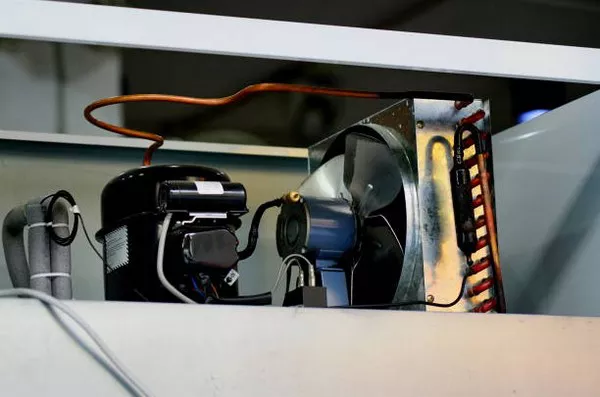When considering the purchase or sale of a used air compressor, one of the primary concerns is determining its worth. Numerous factors contribute to the value of a used air compressor, including its age, condition, brand, and features. In this comprehensive guide, we delve into the intricacies of assessing the value of a used air compressor, providing valuable insights for both buyers and sellers.
Factors Affecting the Value
Age and Usage
The age of an air compressor is a fundamental factor influencing its value. Generally, older models may have depreciated significantly in value due to wear and tear, technological advancements, and changes in industry standards. Additionally, the level of usage plays a crucial role. A compressor used intensively over many years may have undergone more wear and require more maintenance, affecting its overall worth.
Condition and Maintenance History
The condition of a used air compressor is paramount in determining its value. Regular maintenance and proper care can significantly extend the lifespan and preserve the performance of an air compressor. Buyers typically seek units with documented maintenance records, indicating a history of regular servicing and upkeep. Conversely, neglected compressors with evident signs of wear, rust, or mechanical issues may command a lower price.
Brand and Model
The brand and model of an air compressor can greatly influence its value. Well-known brands with reputations for durability, reliability, and performance often retain higher resale values compared to lesser-known counterparts. Moreover, specific models renowned for their efficiency, innovative features, or compatibility with industry standards may fetch premium prices in the used market.
Features and Specifications
The features and specifications of an air compressor also play a significant role in determining its value. Factors such as horsepower, tank size, maximum pressure, and additional functionalities like built-in air dryers or oil-free operation can affect the price. Buyers seeking compressors tailored to specific applications or industries may be willing to pay more for units equipped with specialized features that enhance performance and efficiency.
Assessing the Value
Market Research and Comparative Analysis
Conducting thorough market research and comparative analysis is essential when determining the value of a used air compressor. Explore online marketplaces, auction sites, and classified ads to gauge the current market prices for similar makes and models. Pay close attention to the condition, age, and specifications of comparable units to accurately assess the value of the air compressor in question.
Inspection and Evaluation
Before finalizing a purchase or setting a price for sale, it’s crucial to inspect the used air compressor thoroughly. Check for any visible signs of wear, corrosion, leaks, or mechanical issues. Test the compressor under load to assess its performance and efficiency. If possible, enlist the expertise of a qualified technician to conduct a comprehensive evaluation, including testing for air quality and measuring output parameters.
Documentation and Maintenance Records
Documentation is key to establishing the value of a used air compressor. Sellers should gather all relevant paperwork, including manuals, invoices, and maintenance records. Detailed maintenance records not only provide insight into the compressor’s upkeep but also instill confidence in prospective buyers, potentially increasing its resale value.
Negotiation and Flexibility
Negotiation is an integral part of the buying and selling process. Sellers should set a realistic price based on the compressor’s condition, age, and market value, taking into account room for negotiation. Similarly, buyers should be prepared to negotiate based on factors such as desired features, warranty coverage, and potential maintenance costs. Flexibility in pricing and terms can facilitate successful transactions for both parties.
FAQs
1. How do I determine the age of a used air compressor?
Determining the age of a used air compressor can often be done by locating the serial number on the unit. Most manufacturers include date codes within the serial number, indicating the year of production. Additionally, consulting the compressor’s documentation or contacting the manufacturer directly can provide information regarding its age.
2. What maintenance tasks should I look for in the compressor’s records?
Maintenance records should ideally include details of routine tasks such as oil changes, filter replacements, belt adjustments, and any repairs or servicing performed. Look for evidence of regular maintenance intervals recommended by the manufacturer, as adherence to these schedules can significantly impact the compressor’s longevity and performance.
3. Are there any specific red flags to watch out for when inspecting a used air compressor?
During inspection, watch out for signs of excessive wear, such as worn-out belts, leaks, rust, or corrosion. Unusual noises or vibrations during operation could indicate underlying mechanical issues. Additionally, inspect the electrical components for any signs of damage or malfunction. It’s advisable to thoroughly test the compressor under load to ensure it operates smoothly and efficiently.
See Also How Does a Car Compressor Work?
Conclusion
Determining the worth of a used air compressor requires careful consideration of various factors, including age, condition, brand, and features. By conducting thorough market research, inspection, and evaluation, buyers and sellers can arrive at fair and mutually beneficial transactions. With attention to detail and diligence, navigating the used air compressor market can be a rewarding endeavor for both parties involved.

